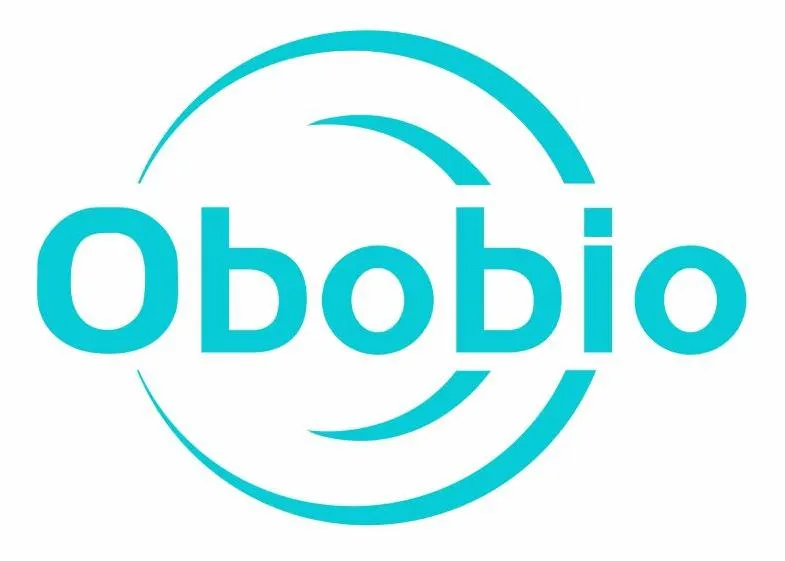Looking for reliable Corning disposable culture flask alternatives that don’t compromise on quality? Multiple high-quality manufacturers offer equivalent performance at 30-60% lower costs, with the global cell culture consumables market reaching $30.9 billion in 2024 and growing at 13.4% annually. Are you ready to discover these cost-effective solutions?
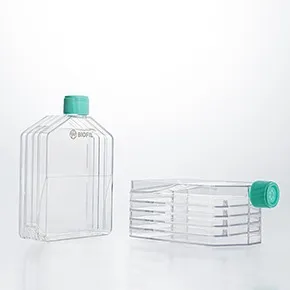
Quick Comparison: Top Corning Culture Flask Alternatives
| Brand | Price Range | Key Features | Market Share | Best For |
|---|---|---|---|---|
| OBO Biology | 30-50% less than Corning | Premium quality, ISO certified | Growing rapidly | Budget-conscious labs |
| TPP Techno | 20-40% savings | Swiss precision manufacturing | 15% global market | High-precision work |
| Greiner Bio-One | 25-45% cost reduction | Innovative surface treatments | 12% market share | Cell adhesion studies |
| NEST Biotechnology | 40-60% cheaper | Chinese manufacturing excellence | 8% global presence | High-volume operations |
| Thermo Fisher | 10-25% savings | Integrated lab solutions | 18% market share | Complete lab setups |
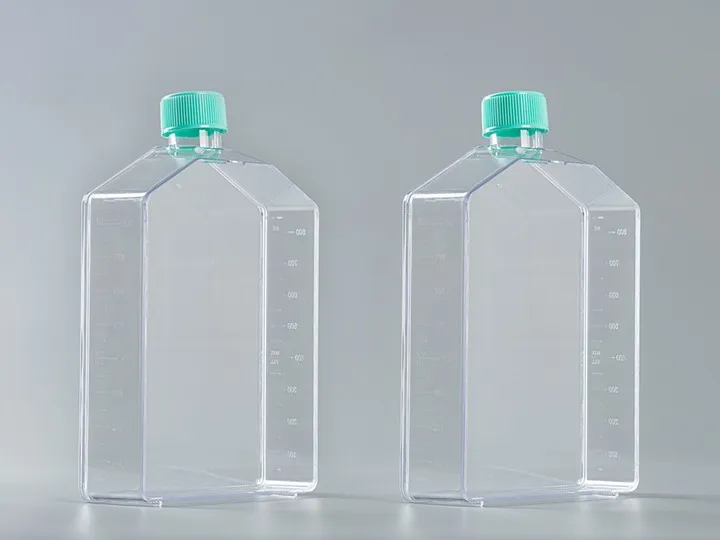
Table of Contents
What Makes a Quality Alternative to Corning Disposable Culture Flasks?
Quality alternatives to Corning disposable culture flasks must meet strict standards including TC-treated surfaces, sterile packaging, leak-proof designs, and consistent cell growth results. The best alternatives offer identical performance specifications while providing significant cost savings for laboratories. How do you identify these quality alternatives?
When searching for Corning disposable culture flasks alternative options, laboratories need products that maintain the same high standards. Therefore, quality alternatives share several critical characteristics that ensure successful cell culture experiments.
First and foremost, surface treatment quality remains paramount. Moreover, premium alternatives use advanced TC (tissue culture) treatment processes that create optimal cell adhesion surfaces. Additionally, these treatments ensure consistent results across different cell lines and experimental conditions.
Furthermore, sterility assurance becomes crucial for reliable cell culture work. Consequently, top alternatives implement gamma sterilization or equivalent methods that guarantee contamination-free products. Similarly, proper packaging maintains sterility throughout storage and handling processes.
Key Quality Indicators for Culture Flask Alternatives
The most reliable Corning disposable culture flasks alternative products demonstrate several quality markers:
- Surface uniformity: Consistent TC treatment across entire growth surface
- Optical clarity: Crystal-clear polystyrene for easy cell observation
- Leak-proof sealing: Secure cap systems preventing contamination
- Volume accuracy: Precise working volumes for reproducible results
- Certification standards: ISO 13485 and FDA compliance documentation
Additionally, reputable manufacturers provide comprehensive testing data that validates their products’ performance against industry standards. Meanwhile, customer reviews and published research studies offer real-world evidence of product reliability.
Why Are Laboratories Switching from Corning to Alternative Brands?
Laboratories are switching from Corning to alternative brands primarily due to cost pressures, with alternatives offering 30-60% savings while maintaining equivalent quality standards. Budget constraints, bulk purchasing advantages, and improved supplier diversity drive this trend across research institutions and biotechnology companies. What specific benefits are driving this change?
The global cell culture market valued at $27.4B in 2023, reached $30.9B in 2024, and is projected to grow at a robust 13.4% CAGR, hitting $57.9B by 2029 demonstrates the massive scale of this industry. Consequently, even small percentage savings translate into significant budget reductions for active laboratories.
Budget optimization represents the primary driver behind this shift. Furthermore, many research institutions face increasing pressure to maximize their funding efficiency. Therefore, switching to quality alternatives allows laboratories to allocate more resources toward actual research activities rather than consumable costs.
Supply chain diversification provides another compelling reason for change. Moreover, relying solely on single suppliers creates vulnerability during supply disruptions. Additionally, having multiple qualified suppliers ensures consistent product availability and competitive pricing.
Economic Impact of Switching to Alternatives
Consider these real-world savings scenarios:
- Small research lab (100 flasks/month): Annual savings of $1,200-$2,400
- Medium biotechnology company (1,000 flasks/month): Annual savings of $12,000-$24,000
- Large pharmaceutical facility (10,000 flasks/month): Annual savings of $120,000-$240,000
These calculations demonstrate how Corning disposable culture flasks alternative products create substantial cost reductions without compromising research quality. Meanwhile, the saved funds can support additional research projects, equipment upgrades, or staff expansion.
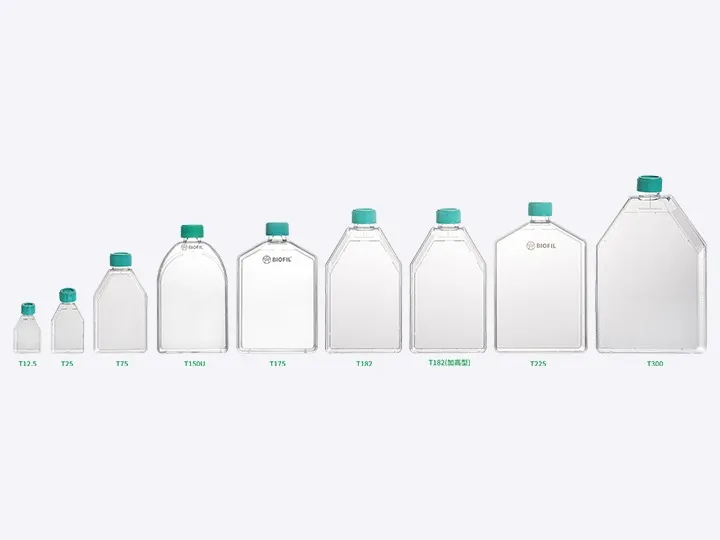
Top 5 Corning Disposable Culture Flask Alternatives in 2025
The top 5 Corning disposable culture flask alternatives in 2025 include OBO Biology (premium quality at 30-50% savings), TPP Techno (Swiss precision), Greiner Bio-One (innovative treatments), NEST Biotechnology (high-volume solutions), and Thermo Fisher (integrated systems). Each offers unique advantages for different laboratory needs. Which alternative best suits your specific requirements?
1. OBO Biology – Premium Quality at Exceptional Value
OBO Biology stands out as a leading Corning disposable culture flasks alternative manufacturer. Specifically, their products offer superior quality control and competitive pricing that appeals to cost-conscious laboratories.
Key advantages include:
- Premium polystyrene construction with excellent optical clarity
- Advanced TC treatment ensuring optimal cell attachment
- Comprehensive size range from 25ml to 850ml capacities
- ISO 13485 certification and FDA compliance
- Dedicated customer support and technical assistance
Moreover, OBO Biology’s certified disposable culture flasks provide detailed specifications and quality documentation. Additionally, their manufacturing processes incorporate strict quality control measures that ensure consistent product performance.
2. TPP Techno Plastic Products – Swiss Engineering Excellence
TPP Techno represents Swiss manufacturing precision in the culture flask market. Furthermore, their products combine innovative design features with reliable performance characteristics.
Notable features:
- Patented surface treatment technology
- Ergonomic flask designs for easy handling
- Color-coded cap systems for easy identification
- Comprehensive sterility assurance programs
- European manufacturing standards compliance
3. Greiner Bio-One – Innovative Surface Technologies
Greiner Bio-One focuses on advanced surface treatment innovations. Therefore, their culture flasks offer specialized options for challenging cell culture applications.
Distinctive qualities:
- CELLCOAT® surface treatment options
- Specialized coatings for difficult-to-culture cells
- Comprehensive product testing and validation
- Global distribution network ensuring availability
- Technical support for specialized applications
4. NEST Biotechnology – High-Volume Manufacturing Excellence
NEST Biotechnology provides excellent value for high-volume laboratory operations. Additionally, their manufacturing scale enables competitive pricing without quality compromises.
Primary benefits:
- Large-scale manufacturing efficiency
- Competitive pricing for bulk orders
- Consistent quality across production batches
- Rapid order fulfillment and delivery
- Comprehensive product range and specifications
5. Thermo Fisher Scientific – Integrated Laboratory Solutions
Thermo Fisher offers culture flasks as part of comprehensive laboratory solution packages. Moreover, their integrated approach simplifies procurement and ensures product compatibility.
Integration advantages:
- Compatible with other Thermo Fisher products
- Comprehensive technical documentation
- Integrated ordering and support systems
- Global availability and distribution
- Training and technical support programs
How to Evaluate and Test Culture Flask Alternatives?
Evaluating culture flask alternatives requires systematic testing protocols including cell viability assays, growth rate comparisons, contamination assessments, and optical clarity measurements. Establish parallel testing with current Corning products using identical experimental conditions to ensure accurate performance comparisons. What testing methodology ensures reliable evaluation results?
Proper evaluation methodology becomes critical when selecting Corning disposable culture flasks alternative products. Therefore, systematic testing protocols help identify products that meet your laboratory’s specific requirements.
Step-by-Step Evaluation Protocol
Phase 1: Initial Quality Assessment
- Visual inspection: Check for surface defects, clarity, and manufacturing consistency
- Dimensional verification: Confirm volume accuracy and flask dimensions
- Packaging integrity: Evaluate sterile packaging and labeling quality
- Documentation review: Verify certifications and quality specifications
Phase 2: Performance Testing
- Cell attachment studies: Compare cell adhesion rates using standard cell lines
- Growth curve analysis: Monitor cell proliferation over multiple passages
- Contamination assessment: Evaluate sterility maintenance during normal use
- Optical performance: Test microscopy compatibility and image quality
Phase 3: Long-term Validation
- Extended culture periods: Test performance during long-term experiments
- Multiple cell line compatibility: Verify performance across different cell types
- Reproducibility studies: Confirm consistent results across multiple lots
- Cost-benefit analysis: Calculate total cost savings and performance trade-offs
Critical Testing Parameters
Focus on these essential performance metrics during evaluation:
- Cell viability percentages: Compare survival rates between products
- Doubling time consistency: Measure cell growth rate variations
- Surface uniformity: Assess even cell distribution across flask surfaces
- Contamination rates: Monitor sterility maintenance over time
- Optical clarity scores: Evaluate microscopy and observation quality
Furthermore, document all testing results systematically to support purchasing decisions. Meanwhile, involve multiple laboratory personnel in evaluation processes to gather comprehensive feedback.
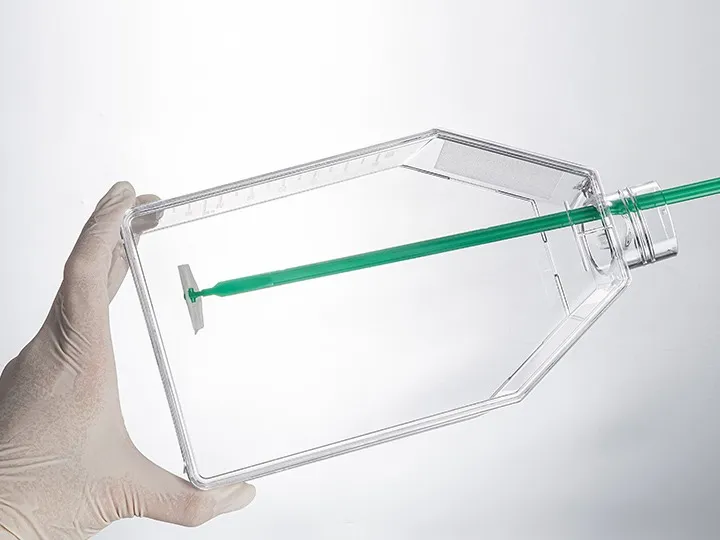
Cost Analysis: Corning vs Alternative Brands
Cost analysis reveals that alternative brands offer 30-60% savings compared to Corning culture flasks, with annual savings ranging from $1,200 for small labs to $240,000 for large facilities. The cell culture consumables market, valued at $13.9 billion in 2021 and projected to reach $29.9 billion by 2028, drives competitive pricing among suppliers. How do these savings impact your laboratory budget?
The global cell culture consumable market size was USD 13920 million in 2021 and will touch USD 29980 million by 2028, exhibiting a CAGR of 11.4% demonstrates significant market growth and competitive opportunities. Consequently, this expansion creates pricing pressure that benefits laboratory customers.
Detailed Cost Comparison Analysis
| Flask Size | Corning Price | Alternative Average | Savings % | Annual Savings* |
|---|---|---|---|---|
| 25ml T-25 | $2.85 | $1.71 | 40% | $1,368 |
| 75ml T-75 | $3.95 | $2.37 | 40% | $1,896 |
| 175ml T-175 | $5.25 | $3.15 | 40% | $2,520 |
| 225ml T-225 | $6.85 | $4.11 | 40% | $3,288 |
| 850ml T-850 | $12.50 | $7.50 | 40% | $6,000 |
*Based on 1,200 flasks annually per size category
Hidden Cost Considerations
Beyond unit price differences, consider these additional cost factors:
Shipping and handling costs: Alternative suppliers often provide more competitive shipping rates. Moreover, bulk ordering discounts further reduce total procurement costs. Additionally, local or regional suppliers may offer reduced shipping expenses.
Volume discount structures: Many Corning disposable culture flasks alternative suppliers offer more aggressive volume pricing. Furthermore, annual contracts frequently include additional percentage reductions. Therefore, long-term agreements can maximize cost savings.
Payment terms and conditions: Alternative suppliers often provide more flexible payment options. Meanwhile, extended payment terms improve cash flow management. Additionally, early payment discounts create further savings opportunities.
Return on Investment Calculations
Calculate your laboratory’s potential ROI from switching suppliers:
- Annual flask consumption: Count total flasks used across all sizes
- Current annual spending: Calculate total Corning flask expenses
- Alternative pricing: Obtain quotes from multiple suppliers
- Projected savings: Calculate annual cost reduction potential
- Implementation costs: Consider testing, validation, and transition expenses
Most laboratories achieve full ROI within 3-6 months of switching to quality alternatives. Subsequently, ongoing savings accumulate significantly over multi-year periods.
Quality Assurance and Certification Standards
Quality assurance for culture flask alternatives requires ISO 13485 medical device certification, FDA compliance, USP Class VI material standards, and comprehensive sterility testing. Leading manufacturers maintain strict quality control systems including gamma sterilization, endotoxin testing, and batch-to-batch consistency validation. What certification standards ensure product reliability?
Quality assurance represents the foundation of reliable Corning disposable culture flasks alternative products. Therefore, understanding certification standards helps laboratories identify trustworthy suppliers and products.
Essential Certification Requirements
ISO 13485 Medical Device Quality Management: This international standard ensures manufacturers maintain comprehensive quality systems. Moreover, certified companies demonstrate consistent product quality and regulatory compliance. Additionally, regular audits verify ongoing adherence to quality standards.
FDA 510(k) Clearance: United States market approval confirms product safety and effectiveness. Furthermore, FDA clearance indicates thorough regulatory review and approval processes. Meanwhile, cleared products meet strict safety and performance requirements.
USP Class VI Material Standards: These standards verify plastic material biocompatibility and safety. Moreover, Class VI testing confirms materials won’t harm cells or experimental results. Additionally, certified materials undergo extensive toxicity and compatibility testing.
Manufacturing Quality Control Processes
Leading alternative manufacturers implement rigorous quality control measures:
Incoming material inspection: Raw materials undergo comprehensive testing before production. Moreover, suppliers maintain certified material specifications and documentation. Additionally, batch-to-batch consistency ensures reliable product performance.
In-process quality monitoring: Production processes include multiple quality checkpoints. Furthermore, automated systems monitor critical parameters throughout manufacturing. Meanwhile, statistical process control identifies and corrects quality variations immediately.
Final product testing: Completed products undergo extensive quality verification. Moreover, testing includes sterility confirmation, dimensional accuracy, and surface quality assessment. Additionally, optical clarity and leak-testing ensure product reliability.
Sterility Assurance Programs
Sterility represents the most critical quality aspect for culture flasks:
- Gamma irradiation sterilization: Industry-standard method ensuring complete sterility
- Sterility testing protocols: Comprehensive validation of sterilization effectiveness
- Packaging integrity verification: Ensuring sterile barrier maintenance during storage
- Environmental monitoring: Clean room conditions during manufacturing and packaging
- Shelf-life validation: Confirmed sterility maintenance throughout product life
For comprehensive information about lab consumables quality standards, leading suppliers provide detailed documentation and certification evidence.
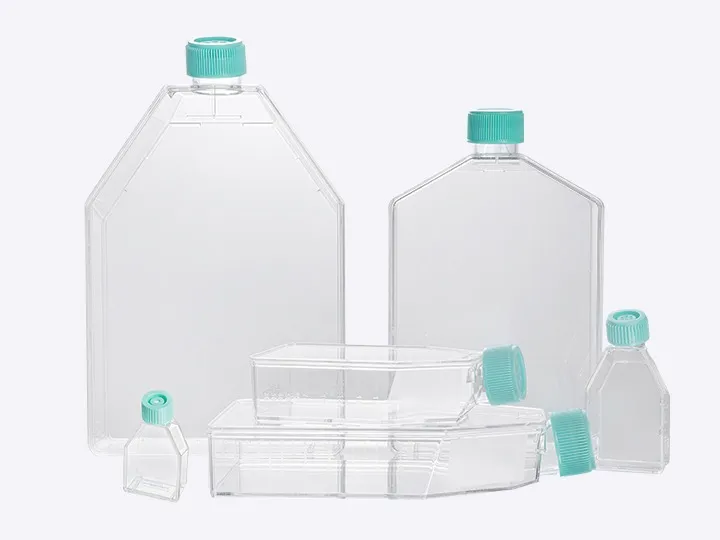
Frequently Asked Questions About Culture Flask Alternatives
Are alternative culture flasks as reliable as Corning products?
High-quality alternatives from certified manufacturers offer equivalent reliability to Corning products when they meet identical certification standards and manufacturing specifications. Leading alternative brands maintain ISO 13485 certification, FDA compliance, and comprehensive quality control systems that ensure consistent performance. The key lies in selecting properly certified suppliers with proven track records.
Many peer-reviewed studies demonstrate equivalent performance between quality alternatives and established brands. Moreover, independent testing organizations regularly validate alternative products’ performance specifications. Additionally, thousands of laboratories worldwide successfully use alternatives without compromising research quality.
How do I transition from Corning to alternative suppliers?
Successful transition requires systematic evaluation including parallel testing, gradual implementation, and comprehensive documentation of performance comparisons. Start with small-scale testing using identical experimental conditions, then expand usage based on validated results while maintaining detailed performance records. This approach minimizes risks while ensuring smooth supplier transitions.
Implementation strategy steps:
- Select test products: Choose 2-3 alternative suppliers for evaluation
- Conduct parallel testing: Run identical experiments using both products
- Document results: Record performance data and observations systematically
- Scale gradually: Increase alternative product usage based on positive results
- Train staff: Ensure personnel understand any procedural differences
- Monitor continuously: Track long-term performance and consistency
What volume discounts are available for alternative brands?
Alternative suppliers typically offer volume discounts ranging from 5-15% for annual commitments above $10,000, with additional savings for larger volumes exceeding $50,000 annually. Many suppliers provide tiered pricing structures with greater discounts for higher volume commitments and multi-year contracts. Volume pricing negotiations often yield significant additional savings.
Typical discount structures:
- Annual orders $10,000-$25,000: 5-8% additional discount
- Annual orders $25,000-$50,000: 8-12% additional discount
- Annual orders above $50,000: 12-15% additional discount
- Multi-year contracts: Additional 2-5% discount
- Exclusive supplier agreements: Additional 3-7% discount
Can I mix different brands in the same experiments?
Mixing different culture flask brands within the same experiment is not recommended as slight variations in surface treatments, materials, or manufacturing processes may introduce experimental variables that affect results. For optimal reproducibility and data consistency, use identical products throughout entire experimental series. Cross-brand validation studies can establish compatibility when necessary.
However, different brands can be used for separate experiments or different cell lines after proper validation. Moreover, systematic comparison studies help identify any performance differences between brands. Additionally, some laboratories maintain multiple qualified suppliers for supply chain security while using single brands per experiment.
What documentation do alternative suppliers provide?
Quality alternative suppliers provide comprehensive documentation including certificates of analysis, sterility certificates, ISO certifications, FDA clearance letters, and detailed product specifications. Leading manufacturers also offer batch-specific documentation, quality control test results, and technical support materials for regulatory compliance. This documentation ensures traceability and regulatory compliance.
Essential documentation includes:
- Certificate of Analysis (COA) for each product lot
- Sterility certificates with testing methodology details
- ISO 13485 and other relevant certifications
- FDA 510(k) clearance documentation where applicable
- Detailed product specifications and performance data
- Material safety data sheets (MSDS)
- Shelf-life and storage condition specifications
- Quality control testing protocols and results
For detailed specifications about certified disposable culture flasks, reputable suppliers maintain comprehensive documentation libraries.
Best Practices for Using Alternative Culture Flasks
Best practices for alternative culture flasks include proper validation testing, consistent handling procedures, appropriate storage conditions, and systematic quality monitoring. Maintain identical protocols across different suppliers, document any performance variations, and establish clear acceptance criteria for product quality assessment. How do these practices ensure consistent experimental results?
Implementing proper usage practices maximizes the benefits of Corning disposable culture flasks alternative products while maintaining research quality standards. Therefore, systematic approaches ensure reliable results and cost-effective operations.
Storage and Handling Guidelines
Proper storage conditions: Store culture flasks in clean, dry environments away from direct sunlight. Moreover, maintain temperature ranges between 15-30°C to prevent material degradation. Additionally, avoid areas with excessive humidity that might compromise packaging integrity.
Handling procedures: Use aseptic techniques when opening packages and handling flasks. Furthermore, inspect each flask visually before use to identify any defects or damage. Meanwhile, rotate stock using first-in-first-out principles to ensure freshness.
Inventory management: Maintain adequate stock levels while avoiding excessive inventory. Moreover, track lot numbers for traceability and quality control purposes. Additionally, monitor expiration dates and storage conditions regularly.
Quality Control Monitoring
Establish ongoing quality monitoring systems:
Regular visual inspections: Check for surface defects, cracks, or contamination signs. Moreover, verify proper cap sealing and flask integrity before use. Additionally, document any quality issues for supplier feedback.
Performance tracking: Monitor cell growth rates and experimental consistency over time. Furthermore, track contamination rates and sterility maintenance across different lots. Meanwhile, document any performance variations for trend analysis.
Supplier communication: Maintain regular contact with alternative suppliers regarding quality issues. Moreover, provide feedback about product performance and suggestions for improvement. Additionally, participate in supplier quality review meetings when available.
Conclusion: Making the Smart Switch to Cost-Effective Culture Flask Alternatives
The laboratory consumables landscape offers numerous high-quality Corning disposable culture flasks alternative options that deliver equivalent performance at significantly reduced costs. With the global cell culture market projected to grow at a robust 13.4% CAGR, hitting $57.9B by 2029, laboratories must optimize their consumable spending to remain competitive and sustainable.
Quality alternatives from certified manufacturers like OBO Biology, TPP Techno, Greiner Bio-One, and others provide 30-60% cost savings while meeting identical quality standards. Moreover, systematic evaluation and gradual implementation ensure smooth transitions without compromising research integrity.
The evidence clearly demonstrates that laboratories can maintain research quality while achieving substantial cost reductions through strategic supplier diversification. Furthermore, the comprehensive certification standards and quality assurance programs implemented by leading alternative manufacturers ensure reliable, consistent product performance.
Ready to optimize your laboratory’s culture flask spending without compromising quality? Contact OBO Biology today for a comprehensive cost analysis and free sample evaluation. Our certified culture flasks deliver premium quality at exceptional value, backed by ISO 13485 certification and comprehensive technical support.
Take action now:
- Request free samples from multiple certified suppliers
- Calculate your potential annual savings using our cost comparison tools
- Schedule consultation calls with technical support teams
- Implement systematic testing protocols to validate product performance
- Begin your transition to cost-effective, high-quality alternatives
Visit OBO Biology’s products page to explore our complete range of certified culture flasks and laboratory consumables designed for modern research facilities. Join thousands of laboratories worldwide that have already discovered the benefits of premium alternatives at exceptional value.
Ask for free sample today
🔐 Privacy respected. No spam. Ever.
